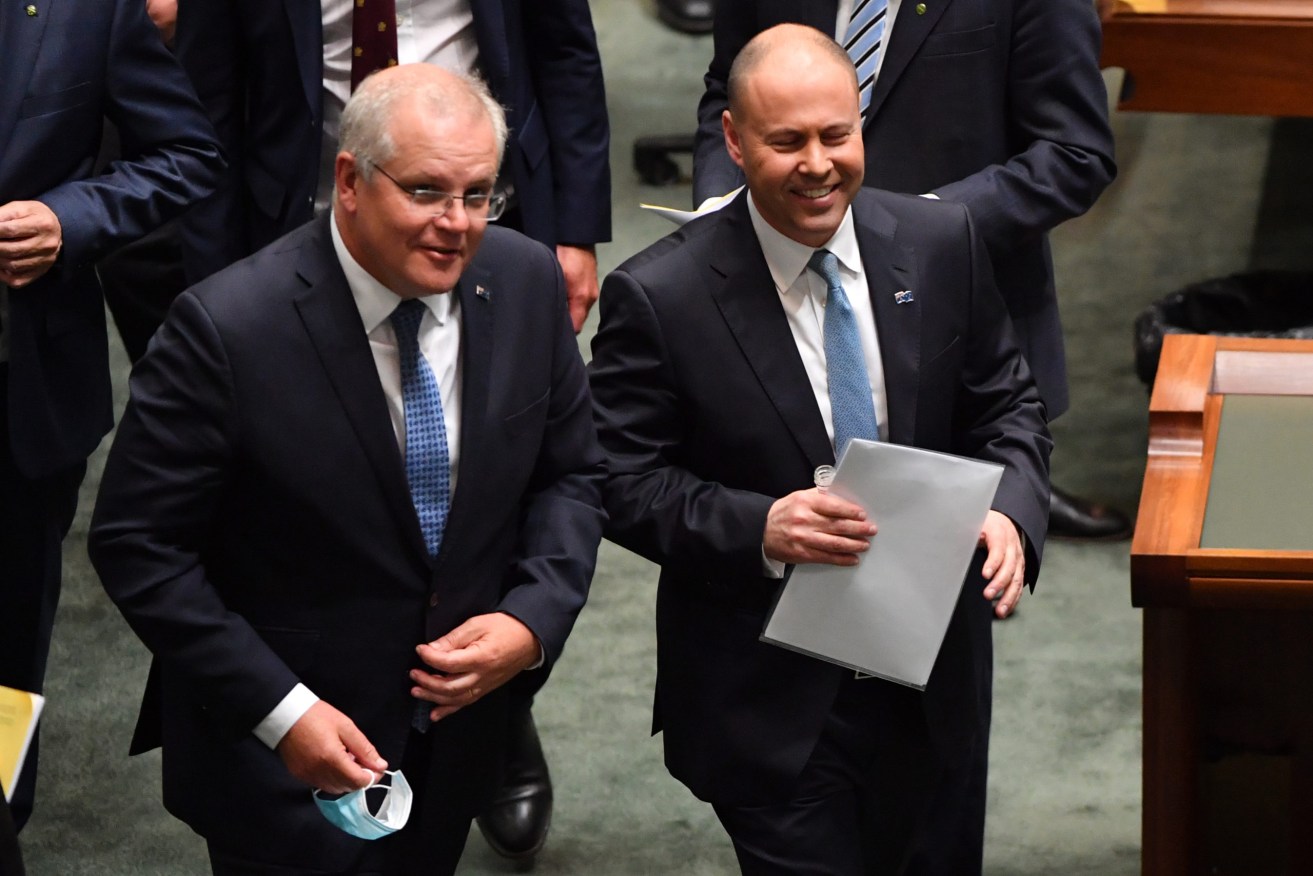Big-spending Budget delivers a modest boost to confidence levels
Confidence among Australians received only a modest lift after last week’s big-spending federal budget.

Scott Morrison and Josh Frydenberg leave the House of Representatives in happier times. (Photo: AAP Image/Mick Tsikas)
The weekly ANZ-Roy Morgan consumer confidence index – a pointer to future household spending – rose 0.8 per cent, returning to its long-run average.
However, ANZ head of Australian economics David Plank thought the increase was just as much in response to Sydney’s recent clean sheet regarding new COVID-19 cases after a “mystery” infection the previous week.
Confidence among Sydneysiders jumped 5.4 per cent.
Among the survey’s components, ‘current financial conditions’ rose by 1.6 per cent, but views on the future barely moved, up 0.1 per cent.
In contrast, views on the the current state of the economy dropped 3.1 per cent and declined 1.1 per cent on the economic outlook.
It is hardly a glowing response to Treasurer Josh Frydenberg’s third budget, which spends almost $100 billion over the next four years, and includes the $1080 low and middle income tax offset being extended for another year.
Shadow treasurer Jim Chalmers will tell a conference later on Tuesday the budget was a missed opportunity to make the economy stronger and more inclusive after the COVID-19 pandemic than it was before.
“For two million Australians who can’t find a job or enough work, or those caught in long term unemployment at 20-year highs, it still feels like a recession,” he will tell an event run by peak welfare group ACOSS.
One factor supporting confidence has been ultra-low interest rates.
The Reserve Bank will release the minutes of its May 4 board meeting on Tuesday where it left the cash rate at a record low 0.1 per cent.
Since the meeting, deputy RBA governor Guy Debelle has delivered a major speech and the central bank has released its quarterly statement on monetary policy with its latest economic figures, suggesting the minutes may not offer much that is new.
What is clear is the RBA won’t be lifting interest rates anytime soon.
RBA governor Philip Lowe has repeatedly said the board will not raise rates until inflation is sustainably within the two to three per cent inflation target, an event he doesn’t expect until 2024.
To drive inflation, Lowe says, unemployment needs to be much lower than it is now and wages need to be growing above three per cent.
The budget forecasts wages only growing by 2.75 per cent by 2024/25 after either trailing or being flat to inflation before then.
Economists expect Wednesday’s wage price index for the March quarter – a key gauge used by the RBA and Treasury to measure wages growth – will show annual growth of only 1.4 per cent.
Treasury secretary Steven Kennedy, who is also a member of the RBA board, will deliver a lunchtime briefing on the budget to an Australian Business Economists event in Sydney on Tuesday.












